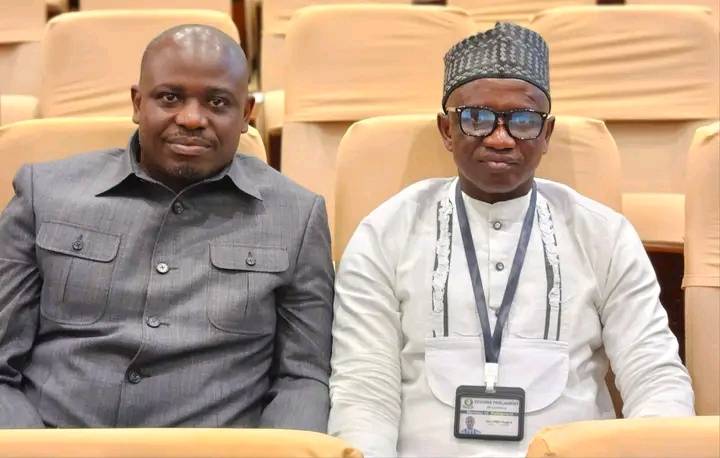The leader of the opposition All People’s Congress (APC) Party in Sierra Leone’s Parliament, Hon. Abdul Kargbo, has commended the Economic Community of West African States Mission in Sierra Leone (ECOMSIL).
Speaking at the Extra Ordinary Session of the ECOWAS Parliament in Togo, Kargbo expressed gratitude to both the Majority and Minority parties in The Gambia Parliament for their support in deploying ECOMSIL to Sierra Leone.
He drew parallels between The Gambia’s peaceful transition of power in 2017 and the current situation in Sierra Leone, highlighting the importance of ECOWAS’ role in maintaining regional stability.
“Today, 24th September, 2024, At the Extra Ordinary Session of the ECOWAS Parliament in Togo, I expressed my thanks and appreciation to both the Leaders of the Majority and Minority parties in The Gambia parliament ( attached photos), who and their MPs supported the deployment of ECOMSIL to Sierra Leone.
“In The Gambia, After the electoral commission declared Barrow the winner, former President Yayah Jameh accepted the election results that he lost the election and promised to hand over to President Barrow on the 17th of January, 2017. Jammeh later refused to hand over power.
“On the 19th January 2017, ECOWAS MISSION to The Gambia (ECOMIG) which were Troops from ECOWAS entered The Gambia following long-time Gambian President Yahya Jammeh’s refusal to step down after his loss in the 2016 presidential election to Adama Barrow. This ultimately ended the 2016-17 Gambian constitutional crisis.
“Forces entered the country on 19 January at the request of Barrow, who was sworn in that day as the new president at the Gambian embassy in Dakar, Senegal. As troops reached the capital, Banjul, Jammeh stepped down and left the country. Following his departure, 4,000 ECOWAS troops remained in The Gambia to maintain order in preparation for Barrow to return and consolidate his presidency.”
The ongoing extraordinary session of the ECOWAS Parliament will focus on adopting the 2025 draft budget, implementing reforms, and addressing regional challenges. The meeting is attended by 115 parliamentarians from 15 member states.












I am really disappointed with the behavior of certing individuals of our country political party. Let’s them remember that our country elected president Boi countiue to leads our country as long as democratic issues are realize. So please stop theses behavior and forcouse on development of our country.
My friend, the man is telling the truth please allow him
Good bye to Bio, the wicked president ever in Sierra Leone.